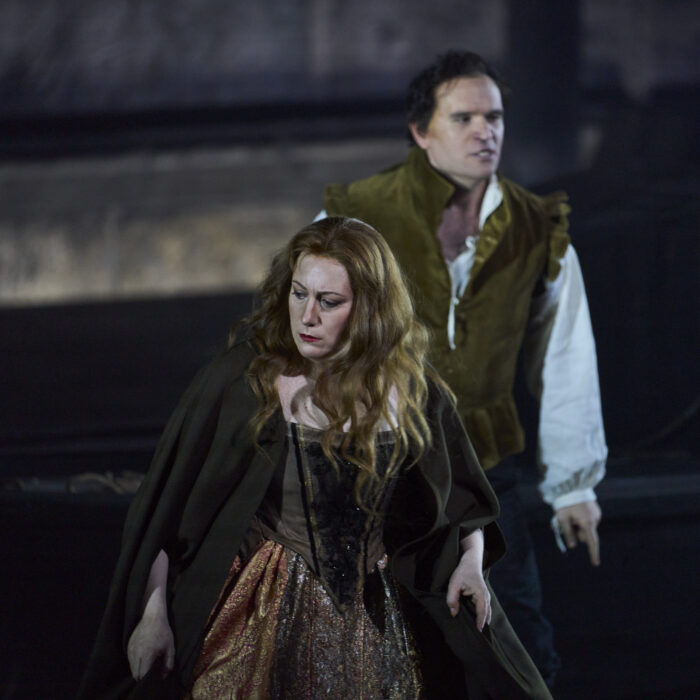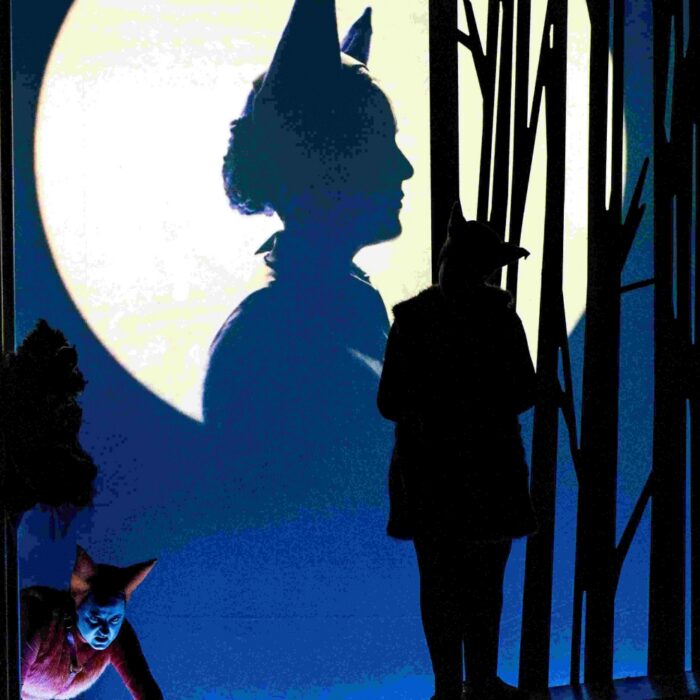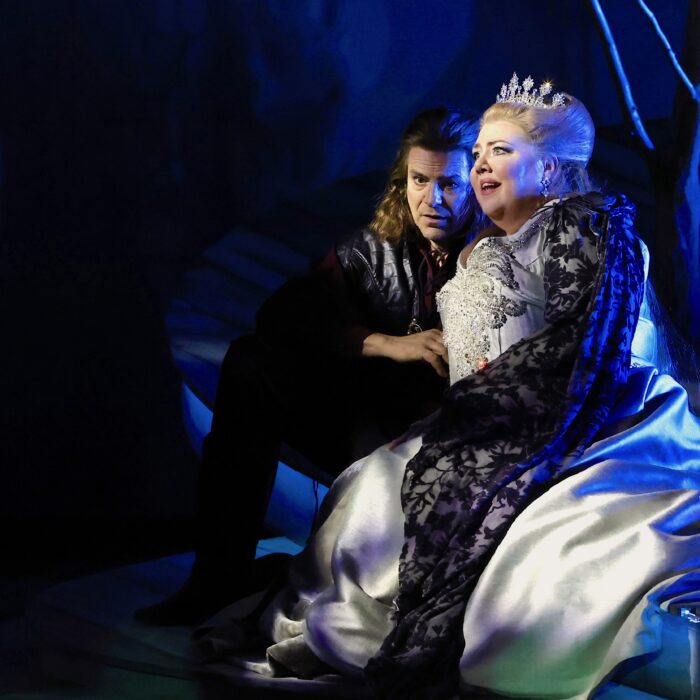
Berwaldhallen 2024-25 Review: ‘So We Will Vanish’ With Anne Sofie von Otter
By John Vandevert(Photo Credit: Ewa Marie Runquist)
Very rarely do I review concerts featuring heavy hitter singers and feel sad afterwards, for the audience and performer alike, wishing that what was presented was something else entirely. However, in Berwaldhallen’s second offering of the 2024-25 season, “So We Will Vanish With Anne Sofie von Otter,” the great Octavian, the incomparable mezzo-soprano, and one of the immortal bastions of early musical excellence, Anne Sofie von Otter was forced to sing unsingable music. Not only unsingable music, but melody-less music which was as easily forgotten as it was narratively bereft. Moreover, we bore witness to a prime example of when a “second modernity” composer writes for the voice as an instrument but not the person who has the voice, a deadly crime against the art form. In fact, von Otter commented on this in 2016 when speaking with David Nice of “theartsdesk.”
Musical Highlights & Lowlights
Featuring Outi Tarkiainen’s symphonic work, “The Ring of Fire and Love,” composed in 2020 to critical praise, Mikael Karlsson’s forgettable three-song cycle, “So We Will Vanish,” and concluding with Pyotr Tchaikovsky’s critically unfavored but highly evocative “Fate” Symphony (No. 4), it was a night of real highs and very real lows.
On the one hand, I was mistakenly expecting 1980s-90s von Otter, but what was received was an unfortunate shadow of a towering voice that once radiated across the classical music skyline. For those with some of her greatest moments in their ears, her 1998 interpretation of Mozart’s “Laudamus Te” from his “Great Mass in C minor” under Zubin Mehta and her 1997 interpretation of Bizet’s ‘Habanera’ under Claudio Abbado, it was a shame that what we heard was a voice lacking body, excessively airy, and practically colorless.
On the other hand, I was surprised that von Otter could still make it through dangerously composed music which seems written for a machine not a human and finish with some type of grace at the end. Beginning in the mid-2010s, von Otter’s voice gradually lost its ring, becoming airy and ultimately incapable of sustaining her once mighty dynamic abilities, from controlled diminuendos to commanding fortes, from spinning high notes to lower beauty.
What can be said of the entire evening, then? Tarkiainen’s orchestral work was too short but evocative, Karlsson’s work was too long for what it was, and the magnificence of Tchaikovsky’s symphony barely made up for the rather floundering first half. But, having gone exclusively for von Otter, this is not a criticism of her performative artistry, as throughout Karlsson’s three songs (“Doggerland,” “Firehawks,” and “Saint Helena Olive”) she tried to provide dramaturgy, although straining to do so and generally strange in some areas. What she provided the audience was, more or less, a backhanded compliment to her entire legacy, her tenacity to continue paired with a voice unable to comply with her artistic desires.
Questionable Performance Details
What could I even review that night, what was there to review? A better question is: Why was von Otter chosen for this kind of repertoire? In all three songs, most prominent in “Firehawks” and “Saint Helena Olive,” von Otter’s voice fell behind the orchestra, became intensely body-less, “quiet,” but more so powerless. Her attempt at dynamics failed to achieve their effect, and only in her higher range did vibrato and power present themselves.
While she kept up with the orchestral nuances, barely substantiating herself in a neo-Wagnerian orchestral soundscape designed for recording but not the stage, von Otter delivered singer-(un) friendly text that one could barely understand throughout the cycle. I cannot understand who Karlsson’s music was designed to be sung by. In any case, in von Otter’s own words,
“[…] but other pieces I’ve done where they’re drawn out [long aaaaaa yuuuu sounds] because the composers like the sound and they think the voice is an instrument. Which it is, in a way, but it’s just very tiring to sing like that, and no one can get the sense of the words if it’s set like that.”
Thus, it’s rich to know that even von Otter knew what she was singing was not really designed for singers but rather an instrument in the shape of a singer. Nevertheless, browsing through Karlsson’s other vocal works, especially his first opera, “The Echo Drift” (2018), first performed at New York City’s PROTOTYPE Festival, the supremacy of recitative is upon the operatic world and it’s now made its way to orchestral works as well. A lazy way to compose, the absence of melody in the opera’s 80-minute run time speaks to the failure of traditional practices to find any root in the present. A huge disappointment on the part of von Otter, I think it’s odd that she participated in a project such as this. However, her creative contribution to opera and vocal music is undeniable, a legacy which will last forever.


